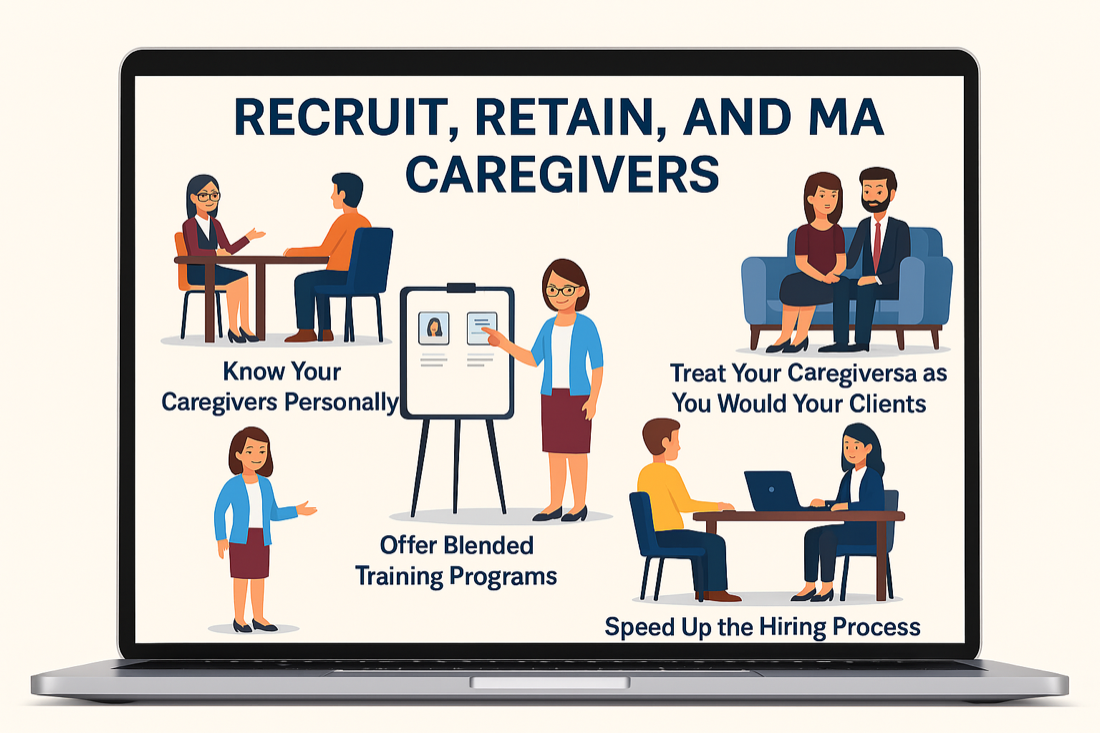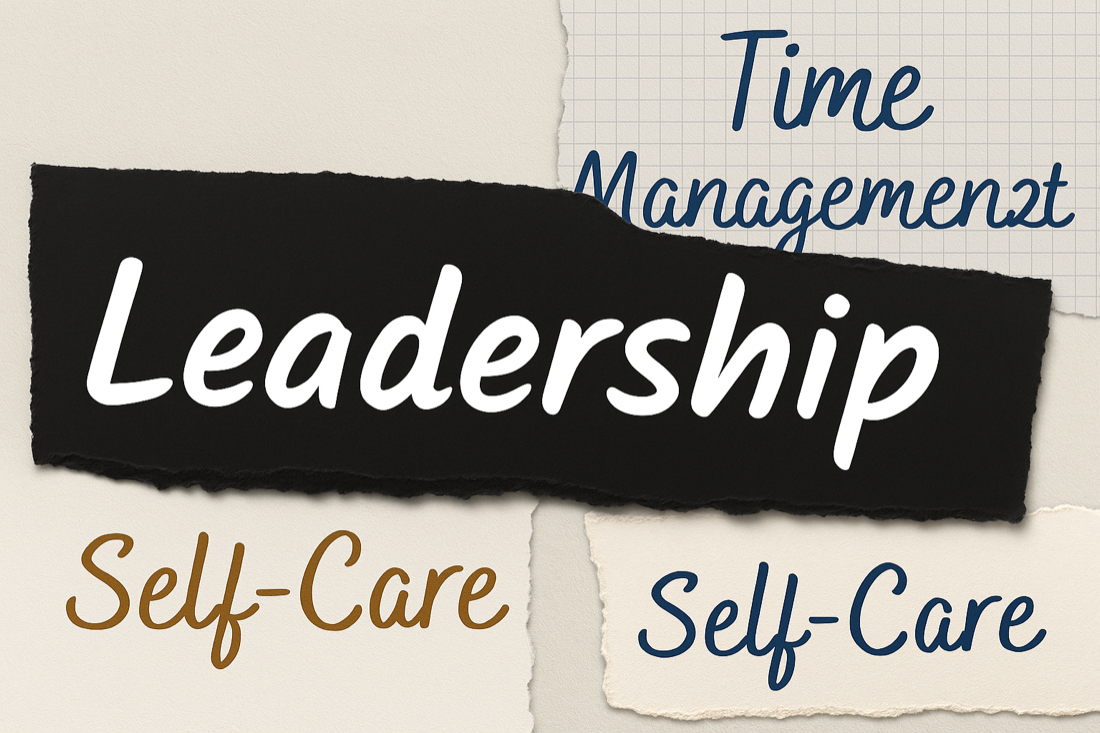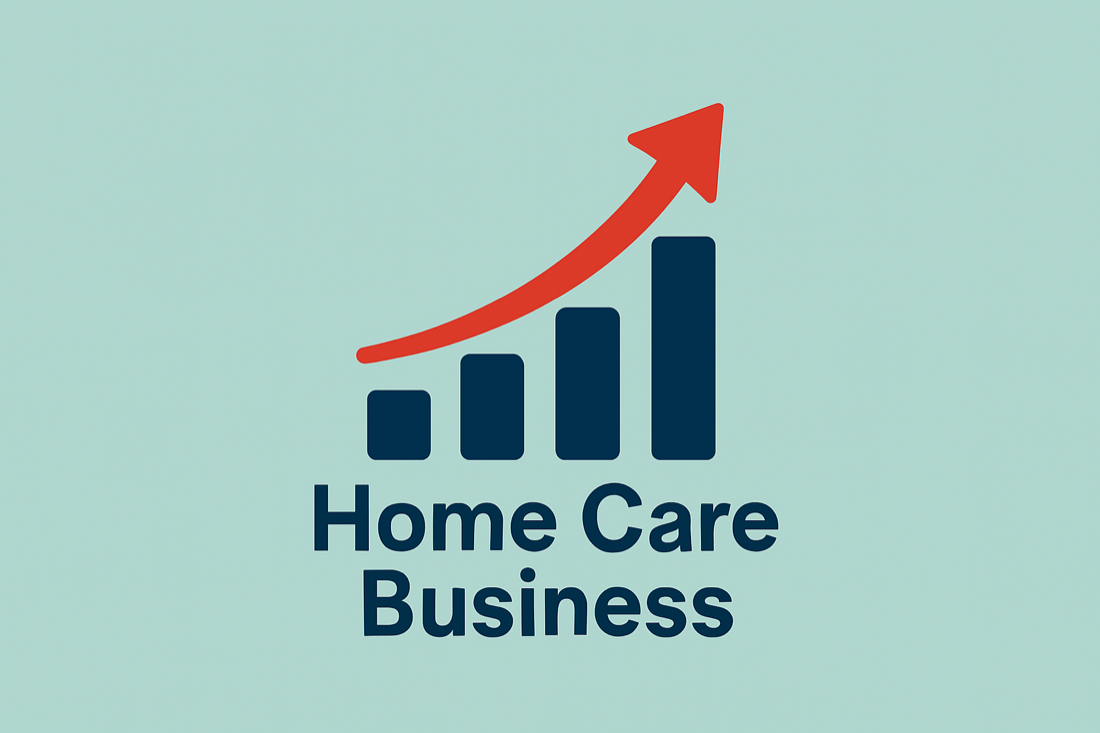
39+ Management Tips for Anyone Starting a Home Care Business
If you’re thinking about starting a home care business, you already know home care is not just about providing care, it’s about running a business that people trust.
Maybe you’re passionate about helping others, or you see the rising demand for home care services as a chance to build a meaningful business. Either way, you need the right strategy, the right team, and the right mindset to succeed.
The home care industry is growing fast, but so is the competition. According to the U.S. Bureau of Labor Statistics, demand for home health and personal care aides is expected to grow 22% by 2032. This is much faster than the average for other industries, which means more clients, more hiring, and more challenges ahead.
That’s why we’ve compiled 39+ essential management tips that come from real industry experience, insights from successful agency owners, and research-backed strategies from business leaders that’ll help you grow and succeed in this home care business. Whether you’re just starting or already managing a growing agency, these strategies will save you time, stress, and costly mistakes.
Let’s get into it.
Tips Related to Office and Administrative Staff

-
Hire the Right Office Staff:
Your administrative team is the backbone of your home care business. Choose individuals who not only have the right skills but also share your vision for quality care. Remember, a well-functioning office creates a positive Impact throughout your agency.
-
Set Clear Accountability Metrics:
Establish clear, measurable goals for each role. Identify one or two key performance indicators for every team member and review them regularly. This practice is supported by management principles from Peter Drucker, who believed in measuring performance to improve efficiency.
-
Hire a Scheduler with a Problem-Solving Mindset:
The person handling your scheduling should be capable of managing complex calendars. A good scheduler ensures that caregivers’ shifts are optimized, reducing stress and ensuring no client is left unattended.
-
Plan Ahead for Staffing Needs:
Don’t wait until you’re overwhelmed. Hire for new roles before your needs become urgent. This prevents rushed decisions and ensures your new hires receive proper training from day one.
-
Focus on Consistent Brand Experience:
Every interaction with your agency, whether it’s a phone call or a visit affects your brand. Invest in training your team to communicate with empathy and clarity, which strengthens your reputation and builds trust with both clients and staff.
-
Shape Your Company Culture Deliberately:
As your agency grows, ensure that you actively shape and communicate the values you expect your team to embody. Consider referencing “The Culture Code” by Daniel Coyle for additional strategies on building a strong team environment.
-
Maintain High Standards for Performance:
Give your employees the benefit of the doubt when needed, but also ensure you address performance issues promptly. Holding the team accountable benefits everyone in the long run.
-
Measure Results, Not Just Hours:
Especially for remote workers, track output instead of input. When you focus on the results, you’ll find that productivity improves without micromanagement.
-
Build a Self-Sufficient Team:
Aim to create a team that can operate independently. Early on, it’s important to hire and train people who eventually will shoulder more responsibility, so as to reduce the need for constant supervision.
Tips for Recruiting, Retaining, and Managing Caregivers

-
Know Your Caregivers Personally:
Simple gestures, like celebrating birthdays with a quick text, show that you value your team. This personal touch goes a long way in building loyalty.
-
Offer Blended Training Programs:
Combine online and in-person training methods to cater to various learning styles. This approach is recommended by experts in education and training, to ensure your caregiver recruitment process builds skilled, confident team members.
-
Treat Your Caregivers as You Would Your Clients:
The way you treat your team reflects directly on how they will treat your clients. High standards in internal care lead to high standards in client care.
-
Speed Up the Hiring Process:
When a caregiver applies, schedule their interview quickly. Ideally within the same day or the next. Research indicates that faster time to hire increases the likelihood that a candidate will join your team.
-
Adopt a Continuous Recruitment Mindset:
Keep recruiting even when you have enough staff. With over 11,400 home health agencies in the U.S. (CDC), competition for skilled caregivers is intense. A continuous recruitment strategy ensures your agency remains fully staffed.
-
Engage with New Hires Early:
Send a text before their first shift to answer any questions they might have. This early communication reduces no-shows and starts the day on a positive note.
-
Streamline Job Qualifications:
In your job postings, list only the essential qualifications. Overcomplicating requirements can scare off good candidates who could be trained effectively.
-
Leverage Text Messaging for Communication:
Use business SMS for quick and reliable updates. This simple tool keeps your home care business running smoothly, especially when managing multiple caregivers.
-
Value Each Caregiver as an Asset:
Recognize that caregivers are valuable team members. Their unique skills and compassionate nature are what make your agency stand out.
Tips for Providing Excellent Client Care

-
Regular Check-Ins with Clients:
Ensure that a member of your management team calls clients regularly. These calls are more than just follow-ups, they show genuine care and provide an opportunity to address any concerns.
-
Establish Feedback Systems:
Implement a system that regularly gathers feedback from both clients and caregivers. According to industry research, agencies that actively listen to their clients report higher satisfaction rates.
-
Prioritize the Client Experience:
Every decision you make should improve the client’s experience. This commitment to excellence is what differentiates your agency in a competitive market.
-
Hire Caregivers with Strong Communication Skills:
Good communication is essential in delivering top-quality client care. Look for candidates who are not only skilled but also naturally warm and personable.
Tips for Your Own Leadership, Time Management, and Self-Care

-
Seek Guidance from Mentors:
Look for mentors who have been successful, despite the challenges of the home care business. Books like “Leadership and Self-Deception” by the Arbinger Institute offer valuable insights into effective leadership.
-
Embrace Servant Leadership:
Study the principles of servant leadership as outlined by Robert K. Greenleaf. This approach will not only improve your leadership skills but also create a supportive and collaborative environment.
-
Prioritize Sleep and Self-Care:
Running a home care agency demands energy and focus. Make sure you get enough rest and schedule regular breaks to prevent burnout.
-
Set Aside Time for Strategic Thinking:
Schedule regular breaks to focus on the big picture rather than getting caught up in daily operations. This practice will help you move your agency toward long-term success.
-
Utilize Technology Effectively:
Invest in reliable home care scheduling software and other technological tools. Agencies that leverage technology typically see significant improvements in efficiency and client satisfaction.
-
Build a Support Network:
Join professional groups, online forums, or local meetups for home care business owners. Sharing experiences with peers can provide invaluable insights and emotional support.
-
Stay Updated with Industry Trends:
Regularly read industry publications and research reports to stay up to date with the latest developments in home care agency management.
-
Invest in Professional Development:
Encourage continuous learning among your staff through training and professional development courses. This not only improves performance but also shows your team that you value their growth.
Tips for Growing Your Home Care Business

-
Understand Your Start-Up Costs:
The average amount spent to start a non-medical, private-duty home care agency in the first six months is typically around $60,000. Understanding these numbers helps you prepare better financially.
-
Focus on Multiple Revenue Streams:
There are three main ways to increase revenue: attracting more clients, increasing per-client revenue, and retaining clients longer. Each pillar is essential for the sustained growth of your home care business.
-
Leverage Online Reviews:
With over 90% of consumers reading online reviews before making a decision, building a good online reputation is very important. Encourage satisfied clients to leave positive feedback.
-
Consider Professional Marketing Services:
If you’re not experienced in digital marketing, hire a marketing agency. They can manage your website, SEO, and Google Ads to boost your online presence.
-
Differentiate Your Services:
Clearly define what sets your agency apart. Whether it’s specialized caregiver training or unique service offerings, make sure this is communicated consistently across all your marketing channels.
-
Cultivate Referral Partnerships:
Building relationships with referral sources takes time and persistence. Studies show that it can take 8-12 visits to secure a referral from a partner. Invest in these relationships early for long-term benefits.
-
Implement Referral Programs:
Both client referral programs and employee referral programs can be highly effective. When done right, they often lead to the most loyal clients and long-standing caregivers.
-
Plan for Sales Support:
As your agency grows, you may need to hire a dedicated sales representative once you reach around 1,000 weekly billable hours. This ensures that your referral strategies continue to scale effectively.
-
Respond to Every Online Review:
Make it a habit to respond to all online reviews, whether they’re positive or negative. This not only shows that you care but also builds credibility with prospective clients.
-
Keep Learning and Adapting:
The industry is always evolving. Stay committed to learning from both your experiences and emerging research to keep your home care business ahead of the curve.
Conclusion
Running a home care business is both challenging and rewarding. By following these 39+ tips, you’ll be better equipped to manage your agency, recruit and retain top talent, provide exceptional client care, and grow your business steadily.
The insights shared here are backed by research, industry studies, and the wisdom of respected authors. Remember, a successful home care agency is built on consistent, thoughtful actions that speak directly to the needs of those you serve.
Your dedication to excellence and continuous improvement will set you apart and help you meet every challenge with confidence.